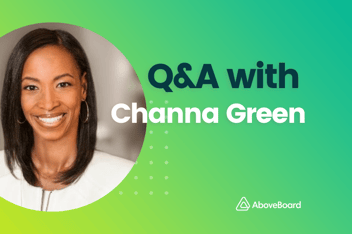Board member and CXO Tia Newcomer has built a career around leading, building, and creating.
She describes her super power as digging into customer problems and solving them with marketing, sales and culture (as she says, Culture gets results. She's created successful go to market strategies and owned $200M+ P&Ls across Global Fortune 100, Private Equity and VC backed companies primarily in the $467B life sciences industry.
In March 2021, Tia was one of the panelists in AboveBoard's first-ever digital event: An Era of Opportunity. During the all-women-led roundtable panel, we brought together experienced executives and board members and touched on embracing opportunity and making your mark.
We caught up with Tia afterwards to expound on her insights. Ahead, she talks advice for women executives, making the most of opportunities, and the best ways to lend support.
How can executives make the most out of opportunities that are available to them?
Have a "pick yourself" mindset. A recent LinkedIn Gender Insights report showed women are 16% less likely than men to apply to a job after viewing it. Yet are 16% more likely than men to get hired after applying.
"Have a 'pick yourself' mindset."
This data should give women the confidence to go for the roles that you want - just do it!
What challenges do you see in driving through to actual executive and board placements?
Related to the above LI study, women apply to 20% fewer jobs than men. By default this means placements will be lower. We have to put ourselves out there and use the mantra of "no bad outcomes." The worst that could happen is a "no" with a side of learning and growth from the application and interview experience.
How can executives encourage and support each other?
I am inviting all of my network to start sponsoring women. Note I didn't say mentor. It's important to acknowledge the differences between the two.
"Mentors talk to you. Sponsors talk about you."
Mentors talk to you, sponsors talk about you. The data around sponsorships is compelling. U.S. women with a sponsor earn more than their counterparts without one, according to research from PayScale. Even more interesting is the power of male allyship in this regard. Female protégés with a male sponsor earn 14.6% more than women with a female sponsor (hello addressing the gender wage gap!).









